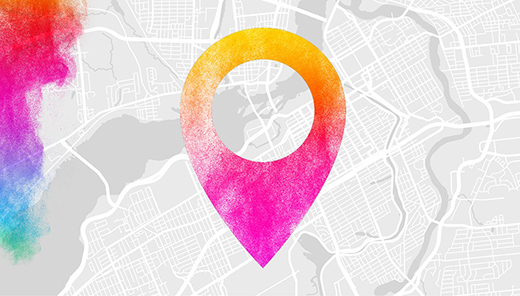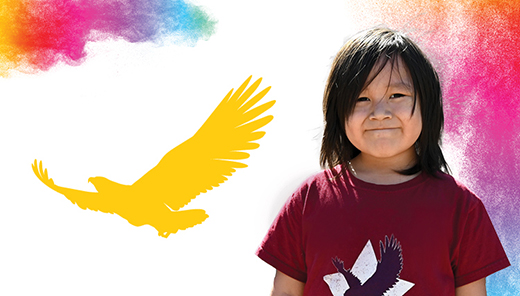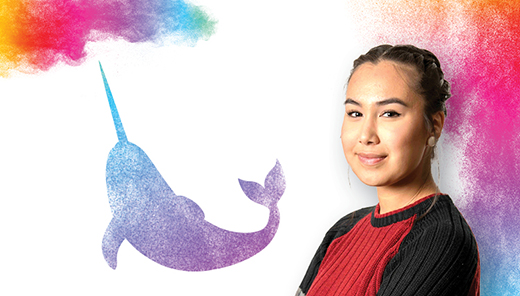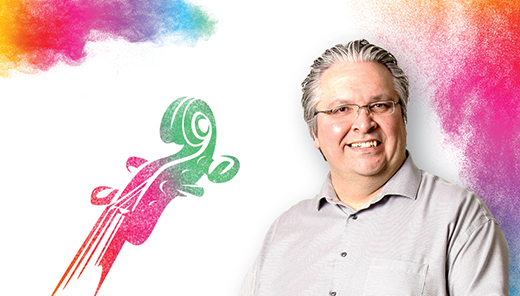Learning resources about First Nations, Inuit and Métis across Canada

Explore the history, languages, cultures, and experiences of Indigenous Peoples in Canada.
Resources
Mental health support available
This page contains topics that may be distressing to some readers. If you need help, please note there are Indigenous mental health services available.
Topics
Women, girls and 2SLGBTQI+ people
Read documents on the impacts of violence against Indigenous women, girls and 2SLGBTQI+ people as well as on recommended actions to end this national tragedy. Get to know inspiring Indigenous women and Two-Spirits, and their invaluable past and present contributions.
National Inquiry into Missing and Murdered Indigenous Women and Girls | Government of Canada
Information on the national inquiry launched to identify the systemic causes of violence against Indigenous women and girls, and make recommendations for effective actions.
Reclaiming Power and Place | National Inquiry into Missing and Murdered Indigenous Women and Girls
A 2-volume report that calls for legal and social changes to resolve the crisis that has devastated Indigenous communities across the country.
Murdered and Missing Indigenous Women and Girls | Assembly of First Nations
Resources on violence against women, girls and 2SLGBTQQIA+ people, including statistics, the First Nations Action Plan and information on other initiatives to end violence.
MMIWG2S+ | National Association of Friendship Centres
Information on initiatives from the National Association of Friendship Centres to end violence against Indigenous women, girls and 2SLGBTQIA+ people. Friendship centres provide culturally appropriate services to Indigenous people living in urban centres across the country.
Gender-Based Violence | Pauktuutit Inuit Women of Canada
Full report, recommendations and resources on how gender-based violence affects Inuit communities.
Red Dress Day | The Canadian Encyclopedia
Learn about Red Dress Day, on May 5, which honours the victims of violence against Indigenous women, girls, and two-spirited people and raises awareness of this national crisis.
Indigenous Women Activists in Canada | The Canadian Encyclopedia
A list of some female Indigenous activists and the important causes they fought and continue to fight for.
Timeline of Influential Indigenous Women | Canada School of Public Service
A timeline showcasing over 150 influential First Nations, Inuit and Métis women from 1600 to today.
Two-Spirit | The Canadian Encyclopedia
The explanation of the pre-colonial and contemporary usage of the term "Two-Spirit" by Indigenous Peoples.
Women of the Nistawoyou | Digital Museums Canada
This virtual exhibit explores the life stories of 10 exceptional matriarchs and the ways they preserve and teach Indigenous traditions on the traditional land of Dene, Cree and Métis people.
Environment, traditional knowledge and territory
Explore the territory through the eyes of Indigenous Peoples, and learn about what First Nations, Inuit and Métis are doing to conserve both traditions and nature. Find out more about treaties and the importance of acknowledging the land we live on.
Indigenous Connections | Parks Canada
A video playlist of Indigenous Peoples sharing their homelands and traditions.
Remarkable Indigenous Scientists and Researchers in Canada | The Canadian Encyclopedia
A list of Indigenous individuals who have excelled in the areas of science, research and related fields.
Indigenous Voices for Nature Conservation | Environment and Climate Change Canada
A video documentary series on First Nations, Inuit and Métis leadership in nature conservation, and its importance to cultural conservation and reconciliation.
Traditional Stories and Creation Stories | Canadian Museum of History
Recordings that describe the creation of the world and how First Peoples came to live in it, available in various Indigenous languages and English.
Seven Sacred Laws | Turtle Lodge
A series of short animated films on the sacred teachings of Anishinaabe culture on how we should live our lives on Mother Earth.
Treaties | Indigenous Peoples Atlas of Canada
The story of Jocelyn Joe-Strack, member of the Agunda/Wolf clan of the self-governing Champagne and Aishihik First Nations of southwest Yukon, sharing how her father and his colleagues participated in the Yukon land claim negotiations.
Mapping the Way | Yukon First Nation Self-Government
Inspiring stories and events that helped map the way to First Nations self-government in Yukon.
Land Acknowledgment | The Canadian Encyclopedia
This resource explains the importance of acknowledging the land we live on to advance reconciliation.
Guide to Acknowledging First Peoples and Traditional Territory | Canadian Association of University Teachers
This guide includes examples of territorial acknowledgements developed by local campus-based Indigenous councils or advisory groups.
Native Land Digital
An app that maps Indigenous territories, treaties and languages.
Children and youth
Discover learning resources on Indigenous history and cultures designed for children and youth. Let stories created by young Indigenous artists and writers inspire you.
Indigenous Arts and Stories | Historica Canada
Artworks and stories created by young Indigenous artists and writers.
Indigenous History | Education Portal | Historica Canada
Resources for elementary and middle school teachers.
It's Our Time Education Toolkit | Assembly of First Nations
A toolkit to help students and teachers understand various First Nations topics.
Activities for Kids | Inuit Circumpolar
A page to teach kids facts about Inuit people and their culture.
Learning Resources | Métis Gathering
Resources for kids and teachers about Métis culture.
Learning Resources | CBC Kids
Games, articles and videos for kids about Indigenous culture and history.
MAJ – News for Kids | Radio-Canada (not available in English)
Articles and videos for kids on current events and various topics about Indigenous Peoples.
First Peoples Educational Kit | Musée de la civilisation
A digital kit for each school cycle highlighting the history and contributions of First Nations and Inuit in Quebec.
Moose Hide Campaign Learning Platform for K-12
A learning platform that offers teachers and their students background information, videos, lesson plans and classroom resources on the importance of taking action to end violence against women and children.
Indigenous Heroes | Canada's Sports Hall of Fame
A resource about Indigenous sport heroes that includes various educational activities, for students from kindergarten to Grade 12.
Languages, cultures and arts
Immerse yourself in the diverse languages, cultures and arts of Indigenous Peoples. Learn how to say "Hello" in an Indigenous language, watch a film or documentary by an Indigenous filmmaker, or visit a virtual museum.
Indigenous Languages | Translation Bureau
Tools, courses, exercises and other resources for teaching and learning Indigenous languages.
Indigenous Languages Across Canada | Statistics Canada
An article from Statistics Canada using data from the 2021 Census of Population. It provides a portrait of the Indigenous languages spoken by First Nations, Inuit and Métis in Canada, highlighting the diversity of Indigenous languages by geographic region.
Canadian Indigenous Languages Technology Project | National Research Council Canada
Technologies developed in collaboration with Indigenous communities and language experts that contribute to revitalization of Indigenous languages.
Indigenous Languages in Canada | The Canadian Encyclopedia
A resource to better understand the wide variety of Indigenous languages and dialects spoken across Canada.
Indigenous Cinema | National Film Board of Canada
Vast collection of Indigenous-made films on a variety of subjects.
Influential Indigenous Musicians in Canada | The Canadian Encyclopedia
The work of these popular Indigenous musicians celebrates their cultures and shines a light on important issues for First Nations, Inuit and Métis.
Playlists | Nikamowin
A platform to discover today's Indigenous artists and their music.
Online Exhibition of Inuit Prints from Cape Dorset | Canadian Museum of History
This online resource offers unique access to works created by artists from Kinngait (Cape Dorset). Visitors are invited to browse some 4,000 works, and to create their own sharable virtual exhibits.
Métis Arts and Culture | Indigenous Peoples Atlas of Canada
An overview of traditional and modern Métis arts and culture.
The Kwakwaka'wakw Potlatch on the Northwest Coast | Virtual Museum
An exhibit that tells the epic story of the resistance and resilience of the Kwakwaka'wakw.
Reconciliation
Access resources, research and reports on various topics related to residential schools, intergenerational impacts of colonization and efforts to advance reconciliation. Find guidance and ideas on how to start conversations about reconciliation.
Reports | Truth and Reconciliation Commission of Canada
Reports documenting the history and legacy of Canada's residential school system and including the 94 Calls to Action to advance reconciliation. It is a testament to the courage of each and every Survivor and family member who shared their story.
Teaching Resources | National Centre for Truth and Reconciliation
Archives of the National Centre for Truth and Reconciliation that include various resources on residential schools and related topics.
Remembering the Children Educational Package | Canada's History
A publication for students and an educator's guide to starting conversations on missing children and unmarked burial sites at residential schools across Canada.
Understanding, Tracking, and Promoting Reconciliation in Canada | Canadian Reconciliation Barometer
A survey that measures progress towards reconciliation between Indigenous and non-Indigenous people in Canada.
Paths to Reconciliation | Canadian Geographic
A learning resource co-created with Indigenous educators, knowledge keepers, Elders, as well as residential school Survivors and their families. The site includes lesson plans to help teachers shed light on some of the lesser-known stories about residential schools as well as on the efforts to locate and commemorate unmarked burials.
Trailblazers
Indigenous trailblazers
A list and some resources on inspiring Indigenous Peoples who have helped shape Canadian history.

GeoViewer: Who are your neighbours?
Look at the map to see who are the First Nations, Inuit and Métis who live around you.
Launch the Interactive MapIndigenous organizations
Join the conversation
Stay connected on social media by using the hashtags #NIHM2024 and #NIPD2024 and sharing these free downloadable images for National Indigenous History Month and National Indigenous Peoples Day.


